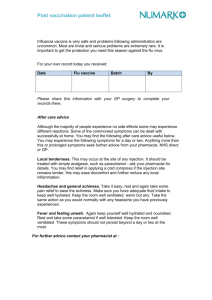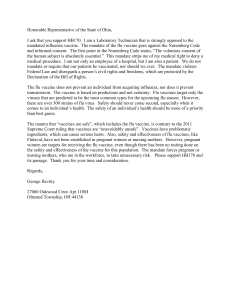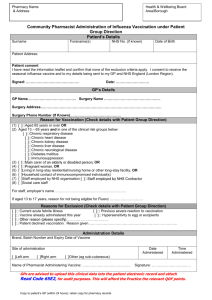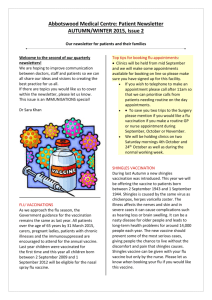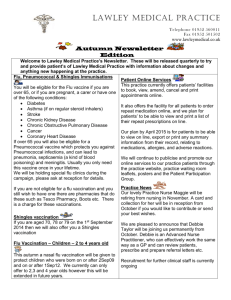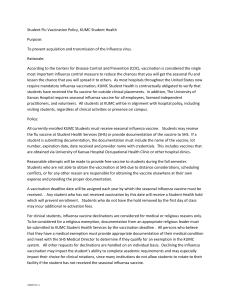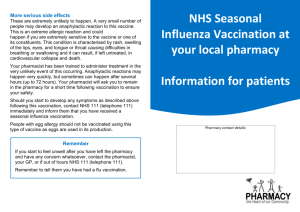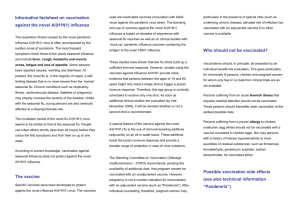Seasonal Influenza Vaccine
advertisement
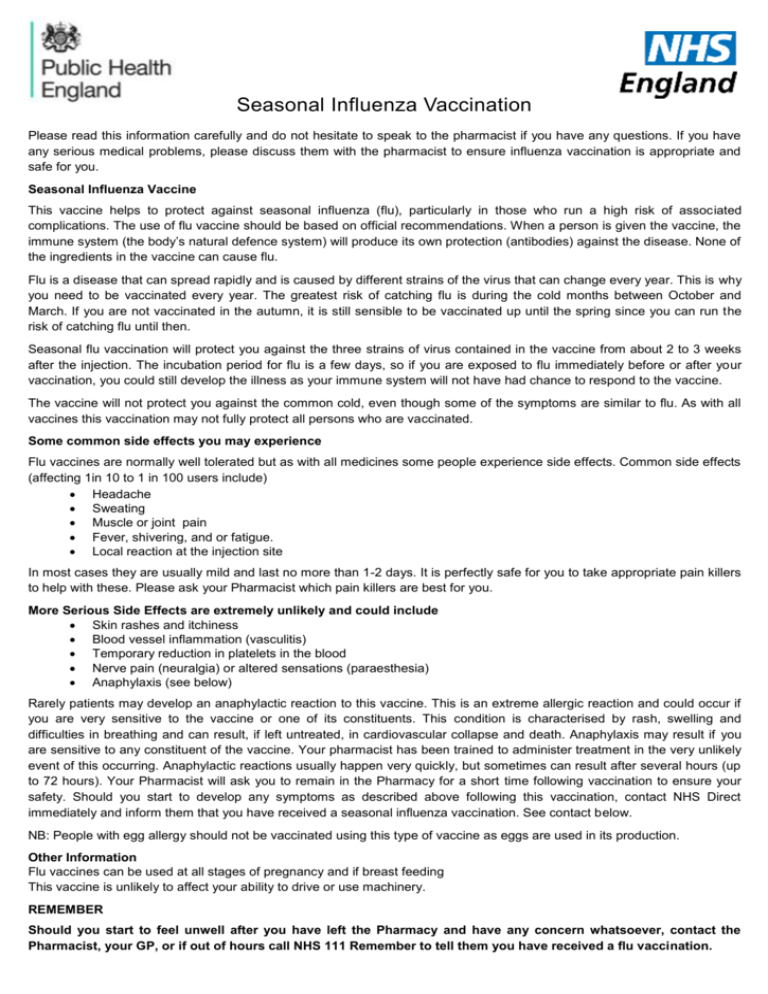
Seasonal Influenza Vaccination Please read this information carefully and do not hesitate to speak to the pharmacist if you have any questions. If you have any serious medical problems, please discuss them with the pharmacist to ensure influenza vaccination is appropriate and safe for you. Seasonal Influenza Vaccine This vaccine helps to protect against seasonal influenza (flu), particularly in those who run a high risk of associated complications. The use of flu vaccine should be based on official recommendations. When a person is given the vaccine, the immune system (the body’s natural defence system) will produce its own protection (antibodies) against the disease. None of the ingredients in the vaccine can cause flu. Flu is a disease that can spread rapidly and is caused by different strains of the virus that can change every year. This is why you need to be vaccinated every year. The greatest risk of catching flu is during the cold months between October and March. If you are not vaccinated in the autumn, it is still sensible to be vaccinated up until the spring since you can run the risk of catching flu until then. Seasonal flu vaccination will protect you against the three strains of virus contained in the vaccine from about 2 to 3 weeks after the injection. The incubation period for flu is a few days, so if you are exposed to flu immediately before or after your vaccination, you could still develop the illness as your immune system will not have had chance to respond to the vaccine. The vaccine will not protect you against the common cold, even though some of the symptoms are similar to flu. As with all vaccines this vaccination may not fully protect all persons who are vaccinated. Some common side effects you may experience Flu vaccines are normally well tolerated but as with all medicines some people experience side effects. Common side effects (affecting 1in 10 to 1 in 100 users include) Headache Sweating Muscle or joint pain Fever, shivering, and or fatigue. Local reaction at the injection site In most cases they are usually mild and last no more than 1-2 days. It is perfectly safe for you to take appropriate pain killers to help with these. Please ask your Pharmacist which pain killers are best for you. More Serious Side Effects are extremely unlikely and could include Skin rashes and itchiness Blood vessel inflammation (vasculitis) Temporary reduction in platelets in the blood Nerve pain (neuralgia) or altered sensations (paraesthesia) Anaphylaxis (see below) Rarely patients may develop an anaphylactic reaction to this vaccine. This is an extreme allergic reaction and could occur if you are very sensitive to the vaccine or one of its constituents. This condition is characterised by rash, swelling and difficulties in breathing and can result, if left untreated, in cardiovascular collapse and death. Anaphylaxis may result if you are sensitive to any constituent of the vaccine. Your pharmacist has been trained to administer treatment in the very unlikely event of this occurring. Anaphylactic reactions usually happen very quickly, but sometimes can result after several hours (up to 72 hours). Your Pharmacist will ask you to remain in the Pharmacy for a short time following vaccination to ensure your safety. Should you start to develop any symptoms as described above following this vaccination, contact NHS Direct immediately and inform them that you have received a seasonal influenza vaccination. See contact below. NB: People with egg allergy should not be vaccinated using this type of vaccine as eggs are used in its production. Other Information Flu vaccines can be used at all stages of pregnancy and if breast feeding This vaccine is unlikely to affect your ability to drive or use machinery. REMEMBER Should you start to feel unwell after you have left the Pharmacy and have any concern whatsoever, contact the Pharmacist, your GP, or if out of hours call NHS 111 Remember to tell them you have received a flu vaccination.
